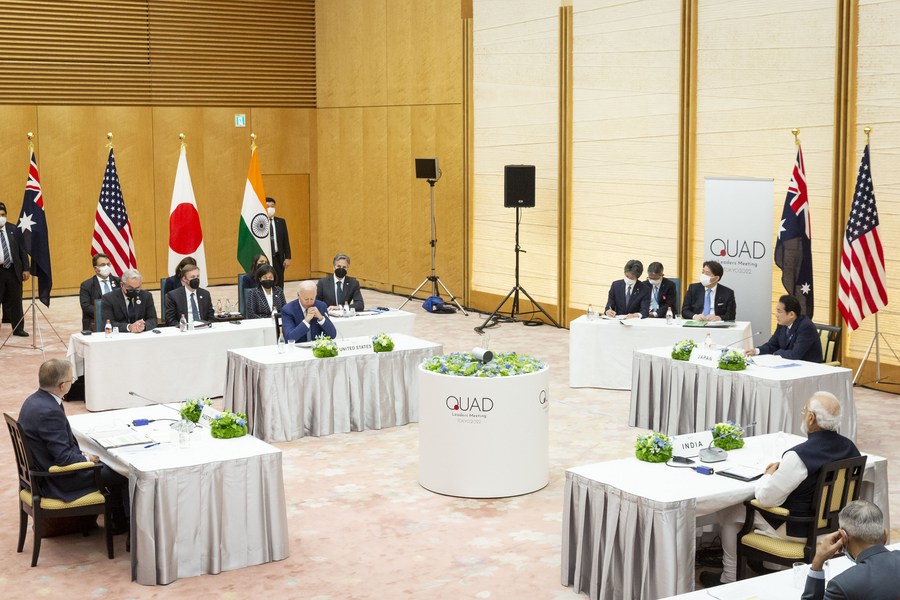Quad members may not keep the same rhythm


Hours after his swearing in as Australia's prime minister on Monday last week, Labor Party leader Anthony Albanese arrived in Tokyo to attend the anti-China Quad summit convoked by the United States.
US President Joe Biden will have breathed a sigh of relief on learning of his attendance as he would have been reassured that Australia will remain a staunch member of the four-party clique, as well as AUKUS, another anti-China club.
However, while stressing that his government's policies will be consistent with the Quad's agenda, Albanese added in Tokyo that Australia looks forward to resolving the biggest challenges of the times, including climate change. The prioritization of "climate change" over "regional security" is clearly at odds with the post-2017 revival of the Quad agenda, and in sharp contrast with the tone of rhetoric of the previous Scott Morrison government.
Tackling climate change was prominently listed in the first part of the Labor Party's "journey to change" campaign during the federal election, and is not a topic the new prime minister could afford to ignore during his first foreign visit.
Despite this, the new government of Australia will continue to keep pace with the US on regional security, which has been national policy for the country since the end of World War II, no matter which party has been in office.
The other national strategy that has remained unchanged in Australian politics in history is that the country has to maintain its dominance in the South Pacific region.
A key reason the relations between Canberra and Beijing became tense during the Morrison government was the substantial achievements China and the South Pacific island countries have made in their economic and trade cooperation, which has made Canberra feel uneasy.
Given that China will continue to advance its relations with these countries-State Councilor and Foreign Minister Wang Yi is on a multi-country tour in the region from Thursday to Saturday to promote common development of the region and to counter the US' divisive anti-China Indo-Pacific strategy-it will be difficult for the Albanese government to take the initiative to mend relations with China. Which is why Albanese pointed out that the Australia's relationship with China would remain "a difficult one".
As such, although the new government of Australia has it new priority, to continue to stay in the US' anti-China club will remain its choice for the foreseeable future, despite the damage that will cause to Australia's national interests, as China is the country's largest trade partner and major investor.


































